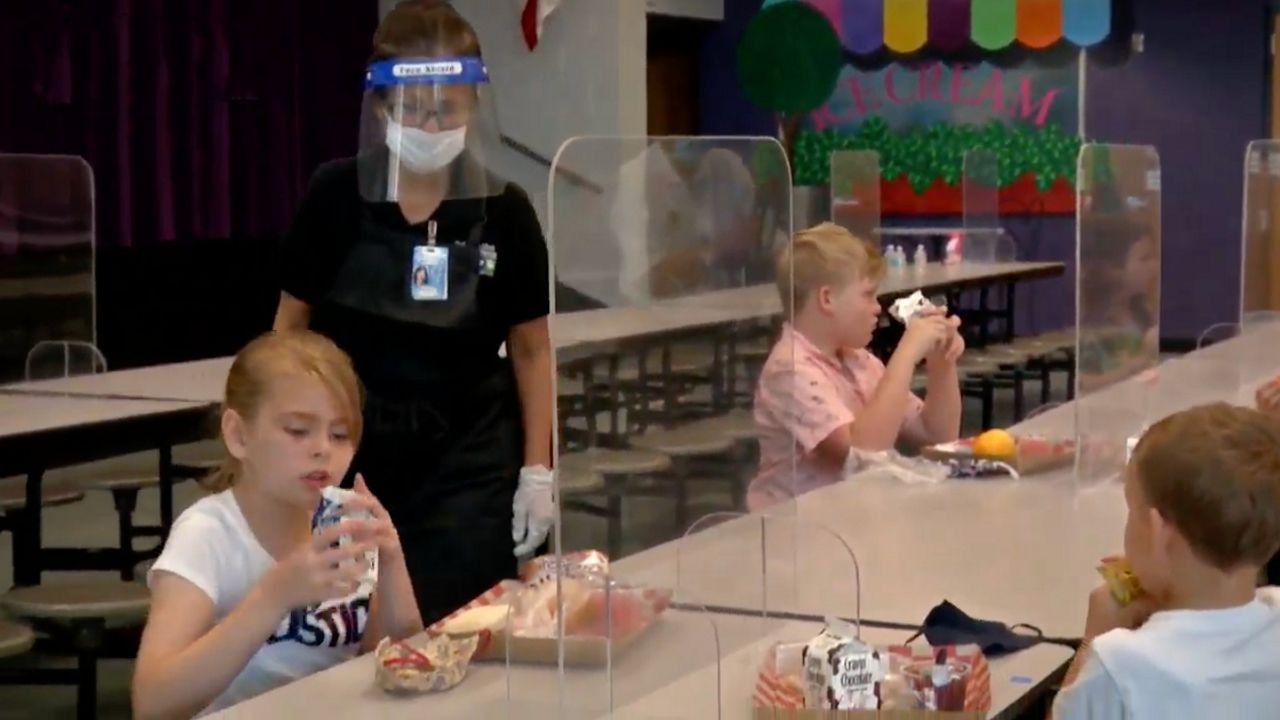This story is reported by Tampa Bay Business Journal, a Spectrum News partner.
In less than two weeks, many children will head back to in-person instruction in the Pinellas County School District, where plexiglass dividers, school masks and high-tech sanitizers will greet them. The cost for all of that: about $3 million and counting.
The school district outlined its efforts at a board meeting this week, and a PCSD spokeswoman told the Tampa Bay Business Journal all the precautions will total roughly $3 million, an amount that could rise.
"We expect the cost to go up as we need to replenish supplies," public information officer Isabel Mascareñas said in an email.
According to Mascareñas, the school originally was set to receive $1.4 million for personal protective equipment and supplies such as hand sanitizer and wipes through the Coronavirus Aid, Relief and Economic Security Act. But extra precautions specifically focused on stopping the airborne Covid-19 — including electrostatic sprayers, foggers and new upgraded filers for air conditioning systems — have increased that total.
Teachers will begin school Thursday, with students set to arrive Aug. 24. The fight for in-person classes versus online has been contested by parents and teachers alike. But the decision to offer an in-person option — and have the reopening plan approved by the state — helped the district keep $167 million it may have otherwise lost, according to deputy superintendent William Corbett. For example, the district receives a higher amount for students in a brick-and-mortar setting than online — with Gov. Ron DeSantis' emergency order passed in July.
"It's not quite like a grant, but almost like that," David Koperski, school board attorney, said during the meeting. "You do not have to apply for the benefit the emergency order offers."
A long list of precautions were outlined at the school board meeting, which ran close to six hours.
• The district invested in six electrostatic sprayers, also called Clorox Total 360 machines, commonly used in hospitals. "We're trying to order more; as you can imagine the supply chain is very tight on those right now," Clint Herbic, associate superintendent of operational services said during the meeting.
• Electrostatic hand sprayers have also been ordered. "One of the concerns was, 'Does staff have enough time for cleaning?'" Herbic said. "We have had operators look at schools and determined there was enough time, but the electrostatic sprayers are kind of a game changer; it saves a tremendous amount of time."
• Classrooms will have "Covid care packages" which come with a disinfectant, microfiber cloth, a trigger sprayer for the disinfectant and a bottle of hand sanitizer.
• Acrylic sneeze guards will be placed throughout the school: at each student and teacher's desk, cafeterias for children sitting across from one another and office and reception areas, many which already have sneeze guards.
• Masks will be required on school buses, which will have decreased ridership. A bottle of hand sanitizer will also be on each bus. Siblings will be required to sit in the same seat to help further spacing from other children.
• 300 air scrubbers, or cleaners, were ordered if the school's air conditioning goes down. "We will get our mechanic out there as fast as we can, but if it's an extended downtime we will bring in the air cleaners to make sure it's cleaning the air at that time," Herbic said.
To get more news and information from this partner, subscribe here.




